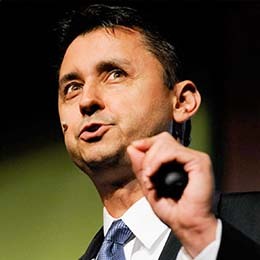What Is Executive Coaching and Why It’s a Strategic Advantage for Leaders

Even the most capable executives recognize that sustaining growth requires more than just experience—it demands intentional, targeted development. Executive coaching offers leaders a vital opportunity to refine their skills, align their impact with organizational goals, and create lasting behavioral change. Let’s take a closer look at why organizations should explore coaching to ensure leaders at all levels realize their full potential and spearhead organizational success.
What Is Executive Coaching?

Telling reinforces dependency; coaching develops capability.
Executive coaching is a personalized, high-impact development process designed to help top-level leaders sharpen their effectiveness, navigate complex challenges, and achieve organizational goals. It’s a confidential partnership that focuses on enhancing a leader’s capabilities in real-world environments, using structured feedback and evidence-based strategies.
Unlike leadership coaching—which supports leaders at all levels within an organization—executive coaching is specifically tailored to individuals operating at the senior-most levels, such as C-suite executives, senior VPs, and high-level directors. Executive coaching is distinctly focused on achieving organizational outcomes by improving leadership behavior, decision-making, and strategic influence.
What Is an Executive Coach?
An executive coach is a trusted advisor who partners with senior leaders to identify growth opportunities, overcome barriers, and achieve significant leadership goals. These professionals bring extensive experience; some may hold advanced certifications in coaching, psychology, or organizational development, while others have spent decades working with executives to enhance their strategic development and executive presence.
Successful executive coaches possess deep business acumen and a strong understanding of leadership frameworks. Their value lies not only in their expertise but also in their ability to create a welcoming space for honest dialogue and actionable feedback. Key traits to look for in an executive coach include proven success in similar industries, strong interpersonal skills, cultural alignment with the organization, and a commitment to measurable outcomes.
What Executive Coaching Isn’t
Executive coaching is not mentoring, consulting, or therapy. Unlike mentors, who often share personal experiences or advice, coaches facilitate self-discovery to help leaders generate their own solutions. It also differs from life coaching, which primarily targets personal fulfillment, and from leadership coaching for emerging leaders, which often focuses on foundational leadership skills.
The objective of coaching isn’t to provide directives—it’s to enable leaders to build their own capabilities, empowering them to lead with confidence and effectiveness. Executive coaching is future-focused and action-oriented, emphasizing measurable growth and results.
Benefits of Executive Coaching

High-impact leaders consciously, intentionally, and methodically make high-value decisions in the midst of unlimited choices.
The impact of executive coaching extends far beyond individual growth—it drives organizational transformation. Key benefits include:
- Enhanced Decision-Making: Leaders improve their ability to make the strategic, high-stakes decisions that prove critical for organizational success.
- Improved Leadership Effectiveness: Coaching builds agile, accountable leaders who model and align their teams to achieve meaningful results.
- Better Strategic Thinking and Problem-Solving: Leaders learn to navigate complexity with clarity and foresight, modeling strong strategic leadership.
- Personal and Professional Growth: Executives expand self-awareness, build resilience, and strengthen interpersonal effectiveness.
- Increased Employee Engagement and Team Effectiveness: Organizations with coached leaders see measurable improvements in employee engagement and productivity. Executive coaching also delivers a 788% return on investment, increasing team performance by 50%.
True leadership development is a catalyst for organizational health. With executive coaching, leaders can deepen their ability to think strategically, connect authentically, and execute with precision. The long-term result is not only stronger individual performance but also a culture of continuous growth that drives the organization forward.
What do today’s leaders need to inspire their teams and make a lasting impact? Download our free guide: Innovative Leadership in the Modern Era
The Most Trusted Leadership Company
Learn how your organization can use our people, content, and technology to create collective action and meaningful change.

Who Can Benefit From Executive Coaching?

Are leaders born or made? This is a false dichotomy—leaders are neither born nor made. Leaders choose to be leaders.
Executive coaching is best suited for senior leaders operating at the highest levels of the organization—those responsible for setting strategy, driving enterprise-wide results, and navigating complex challenges that influence the entire business. This isn’t about general leadership development; it’s about equipping executives to lead at scale, under pressure, and with clarity.
Key groups who benefit most from executive coaching include:
- C-Suite Executives: CEOs, COOs, CFOs, and other top leaders engage with coaches to sharpen strategic focus, strengthen enterprise leadership, and navigate pivotal moments like mergers, performance setbacks, or rapid transformation.
- Leaders Advancing Into the C-Suite: Coaching can be instrumental for senior leaders stepping into executive roles, helping them transition from functional leadership to enterprise-level thinking and influence.
- Startup Founders and Entrepreneurs: For founders leading high-growth companies or managing significant inflection points such as funding rounds, acquisitions, or team scaling, executive coaching provides structure, perspective, and critical support.
Executive coaching is most effective when leaders are managing complexity, driving transformation, or preparing for expanded influence at the top of the organization. In these moments, coaching becomes a strategic tool for clarity, focus, and long-term success—provided that these leaders are open to what a coach can teach them.
Industries that frequently leverage executive coaching include finance, healthcare, technology, manufacturing, and professional services—sectors where the pace of change demands adaptive, resilient leadership. However, at a time when rapid change and disruption have become the norm, the need for executive coaching has expanded across a variety of industries to help leaders become more agile and visionary to navigate the turbulence.
Is coaching right for your organization’s leaders? Download our free guide, Coaching: Equip Your Leaders to Navigate What’s Next
What to Look for in an Executive Coach
In high-stakes situations—whether leaders are navigating a major transition or addressing flailing performance—executive coaching should offer more than mere insight. It should create a visible, sustained impact for both the leader and the entire organization. The right coach brings not only experience and behavioral expertise, but also a sharp understanding of how leadership decisions ripple across teams, systems, and results.
The most effective approach to executive coaching is built on a deep understanding of how culture, leadership, and strategy intersect inside real organizations. Qualified executive coaches bring the behavioral tools and business acumen to help leaders shift mindsets, accelerate alignment, and lead with purpose. Rather than coach in isolation, they align with strategic goals, measure progress against defined outcomes, and guide leaders to execute with clarity and confidence.
When selecting an executive coach for your C-suite leaders, look for:
- Experience with executive-level complexity, especially in organizations facing stalled performance, leadership transitions, or integration challenges.
- Fluency in organizational dynamics, with the ability to quickly understand how culture, structure, and leadership behavior influence results.
- A data-informed, outcome-driven process, with measurable success tied to business objectives and leadership growth.
- A track record of long-term client partnerships, showing consistent, high-impact engagements across industries and functions.
- Adaptability and candor, offering honest, actionable guidance tailored to the leader’s role, style, and environment.
In times of pressure and change, coaches who can balance compassion with strategy and results-oriented thinking act as the lever that turns stagnation into momentum —and leadership potential into organizational progress.
Ready to develop your leaders for what’s coming next? Register now for our free webcast, The Power of Leadership in Uncertain Times.
Understanding the Executive Coaching Process
The typical executive coaching process is structured to deliver measurable behavioral change and leadership growth. An ideal methodology follows four key phases:
- Aligning Objectives and Defining Success: This might begin with an initial consultation to match the candidate with the right coach, followed by a team meeting involving the manager, candidate, HR or talent partner, and coach. Together, these individuals will establish clear objectives and define success metrics.
- Data Collection and Relationship Building: In this stage, the coach gathers comprehensive candidate and business data, such as career history, key assessments, 360° interviews or surveys, or internal competency models. This might also include an assessment of the organization’s culture, business strategy, and external factors to ensure coaching is aligned with real-world demands.
- Data Debriefing and Behavioral Coaching: Using the collected data, the coach and candidate would then identify key strengths, development areas, and opportunities for growth. Coaching session cadence may vary—monthly or biweekly sessions are common—to allow time for practicing new behaviors. Midway through the process, team meetings or pulse-check surveys may be initiated to help measure progress toward defined goals.
- Transition and Sustainability: To ensure long-term success, candidates typically create a formal development plan and present it to their managers. Final team meetings can be used to assign ongoing support roles, while the coach partners with the candidate to prepare for a successful transition beyond the formal coaching engagement.
A structured, time-bound approach ensures coaching is not only personalized but also aligned with business outcomes and sustained over time. By combining deep behavioral insight with clear accountability, leaders can translate initial growth into lasting performance.
Download The Leadership Imperative report to gain valuable leadership insights and begin to align leadership development with strategic initiatives.
Take the Next Step: Find Your Executive Coach
Executive coaching isn’t just a professional development tool—it’s a strategic investment in leadership excellence and organizational success. When leaders grow, their organizations thrive.
Ready to take your leadership to the next level? Learn more about how FranklinCovey’s Executive Coaching Services can change the game for your organization.








